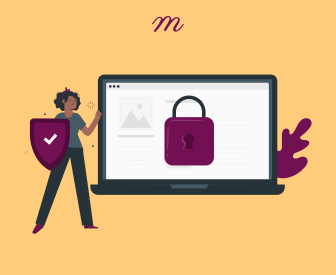In this digital age, therapists and mental health professionals increasingly rely on electronic communication to interact with clients, colleagues, and other healthcare providers. While email offers convenience and efficiency, it also poses significant risks to the confidentiality and security of sensitive health information. This is where the importance of HIPAA-compliant email comes into play. For therapists, understanding and implementing HIPAA-compliant email practices is crucial to protect their clients and themselves from potential breaches of privacy.
Understanding HIPAA in the Context of Email Communication
HIPAA, the Health Insurance Portability and Accountability Act, sets the standard for protecting sensitive patient data in the United States. Any healthcare provider, including therapists, who electronically transmits health information in connection with transactions for which the Department of Health and Human Services has adopted standards must comply with HIPAA regulations. This includes email communications containing protected health information (PHI).
Failure to comply with HIPAA regulations can result in serious consequences, including fines and legal penalties. Therefore, therapists must familiarize themselves with the specific requirements of HIPAA and implement the necessary measures to safeguard patient data when using electronic communication in their practice.
Key HIPAA Requirements for Email:
HIPAA establishes guidelines and regulations to protect the privacy and security of individuals' health information. When it comes to email communication in a healthcare setting, the following key HIPAA requirements must be considered:
Encryption: HIPAA demands that PHI sent over email be encrypted. This means that the data is transformed into a code to prevent unauthorized access during transmission.
Access Control: Only authorized individuals should have access to PHI. This requires secure login credentials.
Audit Trails: Maintain records of who accessed PHI and when, ensuring traceability.
Integrity Controls: Ensure that PHI is not altered or destroyed improperly.
Transmission Security: Protect against unauthorized public access to PHI during transmission.
Compliance with these HIPAA requirements helps therapists and healthcare organizations maintain the privacy and security of patient information when using email as a communication tool. Healthcare providers and organizations need to stay informed about updates to HIPAA regulations and adjust their practices accordingly.
Benefits of Using HIPAA-Compliant Email
Using HIPAA-compliant email in healthcare settings, particularly for therapists and other health professionals, offers several significant benefits, ensuring that the confidentiality, integrity, and security of patients' protected health information (PHI) are maintained. Here are some key advantages:
Enhanced Protection of Sensitive Information: HIPAA-compliant email services employ strong encryption both at rest and in transit. This ensures that sensitive patient information, such as diagnoses, treatment plans, and personal details, is securely transmitted and stored, greatly reducing the risk of unauthorized access and data breaches.
Builds Patient Trust: By using HIPAA-compliant email, therapists and healthcare providers demonstrate their commitment to protecting patient privacy. This commitment can increase patient trust, which is a cornerstone of the therapeutic relationship and essential for effective treatment.
Avoidance of Legal and Financial Penalties: Non-compliance with HIPAA can result in significant fines and legal repercussions. By using a HIPAA-compliant email service, healthcare professionals reduce their risk of incurring these penalties.
Streamlined Communication: HIPAA-compliant email services often come with additional features like secure file sharing, e-signatures, and delivery tracking. These features can streamline communication with patients and other healthcare professionals, leading to improved coordination of care.
Maintains Professional Standards: Using HIPAA-compliant email is a part of maintaining professional ethical standards in handling patient information. It shows a commitment to upholding the standards expected in the healthcare profession.
Ensures Compliance with Audits: In the event of an audit or compliance review, having a HIPAA-compliant email system with proper logging and tracking capabilities can quickly demonstrate adherence to regulations.
Reduces Risk of Data Loss: These email services often include robust data backup and recovery systems, ensuring that critical patient information is not lost in the event of technical issues or cyber incidents.
Encourages Modernization of Practice: Adopting HIPAA-compliant email is a step towards modernizing a healthcare practice. It aligns with the increasing digitization of healthcare records and communication, which is becoming a standard in the industry.
Improves Patient Engagement: Secure email can be used effectively for patient engagement, including appointment reminders, follow-up instructions, and education materials, while ensuring compliance with privacy regulations.
Flexibility and Accessibility: HIPAA-compliant email allows healthcare professionals to communicate securely from any location, which is particularly beneficial in the context of telehealth or when providers need to access or send PHI from remote locations.
Using HIPAA-compliant email solutions not only protects patient data and ensures legal compliance but also contributes to building trust, maintaining a positive reputation, and supporting efficient communication within the healthcare industry.
Best Practices for Using HIPAA Compliant Email
Here are some best practices for using HIPAA compliant email for therapists:
Use encrypted email services: Ensure that your email service provider offers end-to-end encryption to protect the confidentiality of patient information.
Train staff on email security: Provide training to your staff on the best practices for using HIPAA compliant email, including how to recognize phishing attempts and how to securely send and receive sensitive information.
Use secure passwords: Encourage the use of strong and unique passwords for email accounts to prevent unauthorized access to patient data.
Enable two-factor authentication: Implement two-factor authentication for email accounts to add an extra layer of security against unauthorized access.
Limit PHI Exposure: Share only the minimum necessary information.
Only use authorized devices: Limit the use of email for patient communication to authorized devices and ensure that these devices are secure and regularly updated.
Obtain patient consent: Obtain explicit consent from patients before communicating with them via email, and ensure that they understand the potential risks of sending personal health information electronically.
Implement email encryption: Use email encryption tools to secure the content of email messages, preventing unauthorized access to patient information.
Regularly update software: Keep email software and security measures up to date to protect against potential vulnerabilities and security breaches.
Monitor email communications: Regularly monitor and audit email communications to ensure compliance with HIPAA regulations and to detect any potential security breaches.
Verify Recipient Information: Always try to double-check email addresses to avoid sending PHI to the wrong recipient.
Have a response plan for security incidents: Develop a response plan for addressing any security incidents related to email communications, including how to notify patients and authorities if a breach occurs.
Common Pitfalls to Avoid
it's crucial to be mindful of specific pitfalls to ensure the confidentiality and security of patients' protected health information (PHI). Here are common pitfalls to avoid:
Neglecting to Sign a BAA: Not having a BAA with your email provider is a common oversight that can lead to non-compliance.
Using Non-Compliant Email Services: Avoid using popular email services that aren’t designed for HIPAA compliance.
Failure to Encrypt Emails: Sending PHI without encryption is a direct violation of HIPAA rules.
Not Monitoring Access Logs: Regular review of access logs can help detect and prevent unauthorized access.
Choosing a HIPAA-Compliant Email Provider
When selecting an email provider, therapists must ensure that it offers HIPAA compliant services. These providers typically offer enhanced security features like end-to-end encryption, strong access controls, and regular security audits. It’s important to execute a Business Associate Agreement (BAA) with your email provider. This legal document ensures that the provider agrees to comply with HIPAA requirements and protects any PHI it handles.
Here are key considerations when choosing a HIPAA-compliant email provider:
Encryption:
- Look for an email provider that offers end-to-end encryption for both data in transit and data at rest. This ensures that emails and attachments are secure from unauthorized access.
Access Controls:
- Choose a provider that allows you to implement strong access controls. This includes features such as user authentication, password policies, and access permissions to prevent unauthorized individuals from accessing patient information.
Business Associate Agreement (BAA):
- Ensure that the email provider is willing to sign a Business Associate Agreement (BAA), as required by HIPAA. The BAA establishes the provider's commitment to protecting patient information and outlines their responsibilities under HIPAA.
Audit Controls:
- Look for a secure email service that provides robust audit controls and monitoring capabilities. This allows you to track who accessed patient information, when, and for what purpose, facilitating compliance with HIPAA requirements.
Secure Messaging Features:
- Choose an email provider with secure messaging features that enable the secure transmission of patient information. This may include encrypted messaging, secure attachments, and message expiration options.
Data Backups and Recovery:
- Verify that the email provider has reliable data backup and recovery procedures in place. Regular backups are essential to prevent data loss in case of unforeseen events.
User Authentication:
- Opt for an email service that supports strong user authentication methods, such as two-factor authentication (2FA). Multi-factor authentication adds an extra layer of security to prevent unauthorized access.
HIPAA Compliance Expertise:
- Consider providers with a track record of expertise in HIPAA compliance. They should understand the unique needs of healthcare providers, including therapists, and be able to offer guidance on compliance issues.
Secure Mobile Access:
- Ensure that the email provider offers secure access from mobile devices. Mobile access should include encryption and other security features to protect patient information when therapists use smartphones or tablets.
Secure Attachment Handling:
- Check that the email service has secure methods for handling attachments. This includes encryption of attached files to maintain the confidentiality of patient records.
Ease of Use and Integration:
- Choose a provider that is user-friendly and integrates seamlessly into your workflow. An email solution that is easy to use encourages compliance among therapists and staff.
Data Ownership and Storage Location:
- Clarify where the data will be stored and who owns the data. Ensure that the data center complies with relevant data protection regulations and security standards.
Customer Support:
- Assess the quality of customer support provided by the email service. Responsive and knowledgeable support can be crucial in addressing any issues or questions related to HIPAA compliance.
Before finalizing your decision, thoroughly review the terms of service, security features, and any contractual agreements. Regularly assess and update your chosen email provider to adapt to changes in technology and compliance requirements. Additionally, consult with legal and IT professionals to ensure that your chosen email provider aligns with your therapy practice's specific needs and regulatory obligations.
Best HIPAA-Compliant Email for Therapists
Selecting the best HIPAA-compliant email service for therapists is a crucial decision that intertwines the integrity of patient confidentiality with the efficiency of digital communication. Here is the list of 5 best HIPAA compliant Email Service Providers for therapists:
Paubox:
In the healthcare industry, where every email matters and security is non-negotiable, Paubox stands out as the go-to HIPAA-compliant email suite. With its award-winning support and over 5,000 customers trusting it to secure 99 million emails monthly, Paubox has become synonymous with reliability and ease in the world of healthcare communication.
Paubox outshines other solutions by blending user-friendly features with robust security measures. It’s designed for those who value efficiency without compromising on compliance. Whether you're a solo therapist, part of a small clinic, or a member of a large healthcare organization, Paubox caters to all your email security needs.
Key features of Paubox:
Effortless Integration: Paubox seamlessly integrates with popular email platforms like Google Workspace, Microsoft 365, and Microsoft Exchange. What's more, you can keep your existing business email address, ensuring a smooth transition.
Set and Forget: The brilliance of Paubox lies in its simplicity. Setup takes a mere 15 minutes, and from then on, it's a worry-free journey. Every email sent is automatically encrypted, eliminating the risk of human error.
Recipient-Friendly: Unlike other platforms, Paubox ensures that recipients can read emails directly in their inbox, with no need for portal logins or additional downloads. It’s all about making life easier for both senders and recipients.
Advanced Security: Alongside standard encryption, Paubox offers added layers of protection against ransomware, phishing, and other cyber threats. Plus, with its data loss prevention feature, you can be assured that patient data stays within the bounds of your organization.
Rapid and Reliable Support: Recognized for its top-notch U.S. support, Paubox ensures that help is always just a call or click away.
HIPAA Compliance Made Simple: With Paubox, compliance is a breeze. The suite is HITRUST CSF certified and includes a business associate agreement at no extra cost.
Versatility at Your Fingertips: Whether you're using a smartphone, tablet, or smartwatch, Paubox has got you covered. It’s designed for the on-the-go healthcare professional who values both convenience and security.
For therapists and healthcare professionals seeking a stress-free, secure email solution that ticks all the boxes of HIPAA compliance, Paubox is the answer. It’s not just an email service; it’s a complete package, ensuring that every communication you send or receive upholds the highest standards of privacy and security in healthcare.
Hushmail:
Hushmail has also emerged as a revolutionary email service, offering a blend of security, functionality, affordability, and convenience for therapists. This comprehensive service caters to all your encrypted email needs, ensuring that your sensitive information remains confidential and secure.
Key Features of Hushmail:
Encrypted Email for Everyone: Hushmail extends beyond the typical email service by incorporating advanced security features. Whether you're on the web or using an iPhone, Hushmail functions seamlessly, much like your regular email but with enhanced security.
Universal Compatibility: Hushmail allows its users to access their accounts effortlessly via Outlook, Apple Mail, or any Android smartphone. You have the flexibility to use your own domain name or opt for a Hushmail domain, maintaining professionalism and brand identity.
Encrypted Email for All Recipients: With Hushmail you can send encrypted emails to anyone, regardless of their email provider. Recipients can reply securely through Hushmail's private message center, ensuring the confidentiality of sensitive information.
Effortless On-Demand Encryption: Automatic encryption between Hushmail users and simple, switch-based encryption for others. Hushmail's intuitive design makes securing your emails easy and hassle-free.
Accessible Anywhere: You can access your Hushmail account from various platforms, including the dedicated Hushmail for iPhone app, Android email apps, or traditional email software with POP/IMAP support.
Dedicated iPhone App: You can stay connected and secure with the Hushmail for iPhone app. Enjoy the convenience of synced contacts and settings, combined with the robust security features of both Hushmail and your iPhone.
HIPAA Compliance for Healthcare Professionals: Hushmail for Healthcare is designed to protect personal health information (PHI), complete with email archiving and the necessary Business Associate Agreement for HIPAA compliance.
Personalized Domain Use: You can customize your email with your own domain, enhancing your professional image. Hushmail also offers the option to use their subdomains for added convenience.
Email Forwarding and Aliases: Users can benefit from email forwarding and unlimited email aliases for added flexibility and privacy.
Flexible Encryption Options: Adjust your encryption needs with Hushmail's flexible settings. Choose manual encryption in third-party apps, automatic encryption, or a balance of both.
Comprehensive Email Archiving: Keep a detailed record of all emails sent and received within your domain, an essential feature for businesses in healthcare, law, and more.
Plans Designed for Your Business: Hushmail offers specific plans catering to various sectors, including healthcare HIPAA compliance, ensuring that there's a perfect fit for your business needs.
Electronic Signatures and Private Message Center: Most plans include electronic signatures and a private message center, making digital transactions and communications smoother and more secure.
Hushmail is a versatile, secure email solution, perfect for individuals and businesses who prioritize the confidentiality and security of their digital communications. Whether you're in healthcare, law, or any other field, Hushmail provides the peace of mind that comes with knowing your online interactions are protected and private.
MailHippo
MailHippo is another game-changer when we talk about encrypted email communication. Designed to effortlessly blend into your existing email ecosystem, MailHippo is the epitome of simplicity and security, making it another go-to choice for those seeking HIPAA-compliant email solutions.
Key Features of MailHippo?
Ease of Use: With MailHippo, complexity is a thing of the past. You can start sending and receiving HIPAA-compliant emails in mere minutes. There’s no intricate setup or configuration – sign up, and you're ready to go!
Keep Your Current Email: Compatibility is key, and MailHippo excels here. It seamlessly integrates with your existing email address, irrespective of your email provider. This means you can maintain your current email workflows while ensuring security and compliance.
Unmatched Security: With 256-bit AES encryption, your emails and attachments are not just secure in transit but also when at rest. This level of security ensures that your sensitive information remains confidential and protected.
Mobile-Friendly: Accessibility is crucial, and MailHippo’s mobile-friendly interface means you can stay connected and secure on any device, anywhere.
HIPAA Business Associate Agreement (BAA): Compliance is non-negotiable. MailHippo provides a HIPAA Business Associate Agreement during sign-up, ensuring that you're always in line with regulatory requirements.
Additional Benefits:
HIPAA Compliance: MailHippo goes beyond just encryption, adhering to stringent HIPAA mandates for the utmost security and confidentiality of patient health records.
Simplicity: The platform is intuitive and user-friendly. Send and receive secure emails with a few clicks, using your existing email setup.
Flexibility in Receiving Emails: The unique SendSafe® Address makes receiving HIPAA-compliant emails a breeze, even from non-MailHippo users.
MailHippo ensures security, ease, and affordability in the encrypted email space. Whether you're handling sensitive health records or looking for a secure email platform, MailHippo is designed to meet and exceed your expectations. With its user-friendly interface, robust security features, and adaptable plans, MailHippo is not just a service but a secure communication revolution.
Proton Mail:
Proton Mail also offers a HIPAA-compliant email service designed for healthcare providers and therapists. Based in Switzerland, Proton Mail is not just an email service; it's a fortress for your digital conversations.
Key features of Proton Mail:
End-to-End Encryption: Your emails are enveloped in multiple layers of security, ensuring they remain confidential and protected against unauthorized access and data breaches. With Proton Mail's open-source, independently audited end-to-end encryption, and zero-access encryption, only you can access your messages, not even Proton Mail itself.
Swiss Privacy Laws: As a company incorporated in Switzerland, Proton Mail is shielded by stringent Swiss privacy laws. This means your data enjoys the protection of one of the world’s most robust privacy frameworks.
Free and Premium Options: Proton Mail believes in the right to privacy for all, offering a free basic email service. For more advanced needs, their paid plans provide additional features, aligning with their mission to champion a privacy-centric internet.
Multi-Platform Accessibility: Whether you're on a desktop or on the move, Proton Mail's web and mobile apps (available for both Android and iOS) ensure you stay connected securely. Their Proton Mail Bridge feature even integrates with your favorite email clients, maintaining the security of encryption.
Personalization and Efficiency: Customize your inbox to suit your preferences, from themes to folder colors. Stay organized with labels, filters, and multiple addresses linked to the same account. Proton Mail’s advanced search and easy unsubscribe features streamline your email management.
Easy Migration: Switching to Proton Mail is very simple. Their Easy Switch tool effortlessly migrates your existing emails, contacts, and calendars in a single click.
Enhanced Security Over Gmail: Unlike Gmail, Proton Mail does not retain decryption keys on the same servers as your messages. This ensures an added layer of security and privacy, making Proton Mail a superior choice for sensitive healthcare communications.
Proton Mail is more than just a normal service; it's a commitment to safeguarding your digital communications within the healthcare sector. Its Swiss-based, encryption-focused approach ensures that your emails remain private, secure, and compliant with healthcare privacy standards. Whether you're a therapist, doctor, or healthcare provider, Proton Mail equips you with the tools to communicate securely while respecting the confidentiality of your clients and patients.
HIPAAVault:
HIPAAVault is another top-notch encrypted email service that provides HIPAA compliant email solutions for healthcare providers. Their service is essential for ensuring the secure exchange of sensitive patient information. With strong encryption and security features, HIPAA Vault helps healthcare organizations meet HIPAA requirements and safeguard patient data.
Key Features of HIPAAVault
Secure, Reliable, and Compliant: HIPAAVault revolutionizes email security for healthcare organizations, offering HIPAA-compliant email services that easily integrate with Google Workspace and Office 365. This advanced solution ensures that all your email communications, especially those containing Protected Health Information (PHI), are encrypted and fully compliant with HIPAA regulations.
Ease of Use and Peace of Mind: HIPAAVault simplifies your email management, allowing healthcare professionals to focus on patient care rather than IT concerns. With HIPAAVault's solutions, you don't have to worry about downtime or compliance issues. The process is straightforward: encrypted emails are sent to a secure communication room, ensuring that only authorized recipients can access them through a two-factor authentication process.
Customizable and Scalable Options: HIPAAVault offers personalized solutions, whether you need a new HIPAA email address or wish to use your existing domain. Their pricing is transparent and scalable, based on your specific needs, with options for both individual and bulk accounts.
Advanced Features and Support: Besides email encryption, HIPAAVault provides features like HIPAA-secure video options through Google Meet and the ability to send various types of attachments. The platform is designed to be user-friendly, ensuring a smooth experience for both senders and recipients.
Dedicated Support and Expertise: With HIPAAVault, you gain more than just a service; you gain a partner in compliance. HIPAAVault's team is equipped with the expertise to handle complex HIPAA compliance challenges, offering dedicated 24/7 support to resolve any issues promptly.
HIPAAVault is also another great, secure, and user-friendly HIPAA compliant email solution. It’s an ideal choice for healthcare organizations looking to protect patient information and adhere to regulatory requirements. With its diverse features, reliable customer support, and robust security measures, HIPAAVault is one of the top contenders on the list of HIPAA-compliant email services.
The Bottom Line:
Incorporating HIPAA compliant email practices is a necessary step for therapists in the digital world. By understanding and adhering to HIPAA standards, therapists can safeguard their client's sensitive information and maintain trust in their professional relationships. It’s not just about compliance; it’s about commitment to the client's privacy and security in every aspect of your practice.
Remember, HIPAA compliance is an ongoing process. It demands vigilance, regular training, and updates to keep up with the evolving nature of digital communication and cybersecurity threats. By prioritizing HIPAA compliant email practices and using a HIPAA compliant email platform, therapists can focus on what they do best: providing quality care to their clients securely and confidentially.
Why other mental health professionals love Mentalyc

“If I were recommending this software to a colleague, I would tell them that it is the best thing that they could do for their practice.”
Licensed Professional Counselor

“Do yourself a favor, make your life easier. I found Mentalyc to be one of the best tools that I’ve ever used.”
Licensed Marriage and Family Therapist

“For anyone hesitant: this is a lifesaver. It will change your life, and you have more time to be present with your patients.”
Licensed Clinical Social Worker

“It immediately changed my quality of life, personally and professionally.”
Owner/Independently Licensed Marriage & Family Therapist (LMFT)






